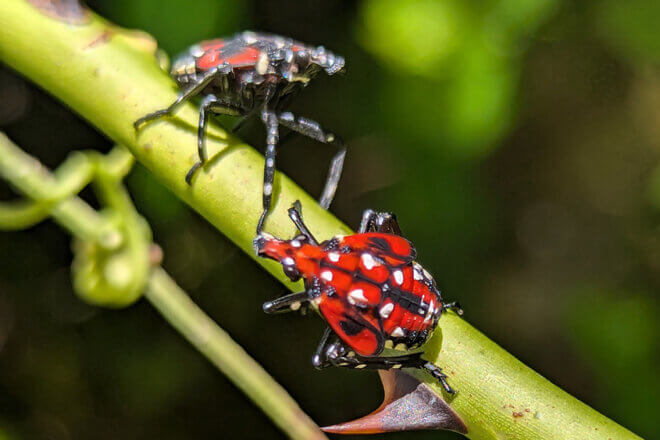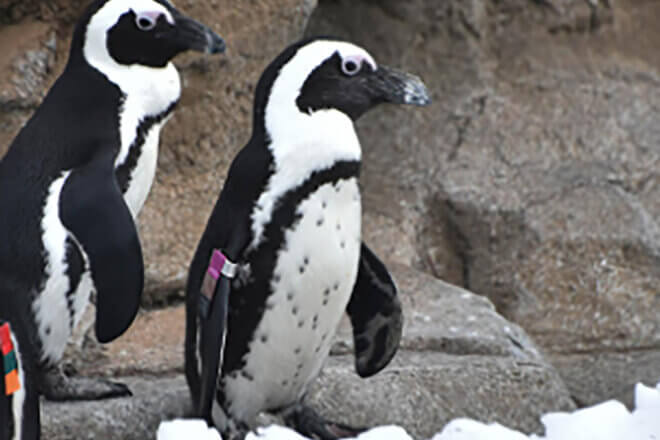Those pesky spotted lanternflies are back for the season.
Have you recently noticed lanternflies outside? We’ve been getting questions from guests about them and maybe you have questions yourself. We wanted to help shed some light on the subject and provide guidance on how to possibly deal with this scourge.
What are spotted lanternflies?
The spotted lanternfly (Lycorma delicatula), or SLF, is a planthopper native to eastern Asia. It has become an invasive species in parts of the U.S. It was first detected in Pennsylvania in 2014. In Maryland, SLFs are active from May (egg hatch) through November (new eggs laid, adults die).
Are they harmful to people, pets or the animals at the Zoo?
No. SLF are not known to cause harm to animals, including humans, their pets, or the animals at the Zoo.
How do they cause harm?
They prefer their primary host, tree of heaven (Ailanthus altissima), another invasive species which is abundant throughout the state. SLF do not appear to be killing the plants, though they can act as a stressor. One known exception is grapes, which have become far less winter-hardy due to feeding by SLF.
Generally speaking, this species’ largest impact seems to be stressing native plants and producing honeydew, a sugary liquid. This honeydew can attract other insects and lead to the growth of sooty mold, which is harmless to humans, but it can inhibit photosynthesis and make fruits unappealing to consumers.
I’ve heard that we should immediately kill any that we see. Is that correct?
While the Maryland Department of Agriculture initially advocated a “see it, kill it” approach, they have since moderated that stance:
“Marylanders need to realize that SLF is going to remain present in the landscape despite most management efforts. The extent of each property owner’s response will need to be measured against how much of a problem the SLF are. (Maryland Department of Agriculture, August 25, 2023)”
Ellen Bronson, Sr. Director of Animal Health, Conservation, and Research at the Maryland Zoo, said, “The State of Maryland does not recommend using pesticide for these invasive pests except for very specific situations, like grape growers that are seeing their harvests impacted. They are not actually seeing a ton of damage from these pests even though they are indeed invasive and spreading. They are now everywhere in the state. We are not using any pesticides for them at the Zoo and do not generally recommend that the public does either. Any pesticides will broadly kill native insects as well.”
Non-chemical control-aka, squashing individual insects-is the safest approach. “Squash-it” approaches can backfire, however, if people mistake other insects for the target. Needlessly harming many individual insects can potentially cause decreases in native insect populations. This means that people should familiarize themselves with the insect and ONLY squash them if they are 100% sure about what it is.
For more information, check out this article from the University of Maryland Extension.






Share this article